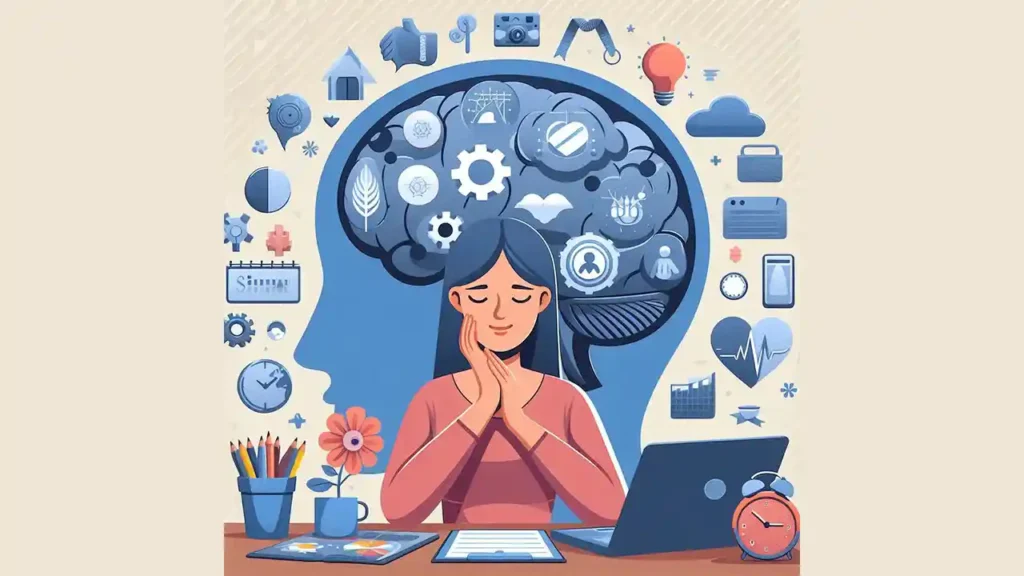World Mental Health Day: Why Mental Health Matters Now More Than Ever
World Mental Health Day, observed annually on October 10th, is an important global event dedicated to raising awareness about mental health issues, promoting mental health education, and advocating for policies that support mental well-being. The day also aims to combat the stigma surrounding mental illness, which often prevents people from seeking the help they need. Initiated by the World Federation for Mental Health in 1992, this day has grown into a worldwide movement supported by governments, organizations, and individuals in over 150 countries.
Mental health affects every aspect of our lives, yet it is often overlooked or misunderstood. Depression, anxiety, bipolar disorder, schizophrenia, and many other conditions can be just as debilitating as physical illnesses, but they are frequently not given the same level of attention. World Mental Health Day is an opportunity to spark conversations about these issues, challenge misconceptions, and create an environment where people feel empowered to seek help and support.
The History and Purpose of World Mental Health Day
The World Federation for Mental Health (WFMH) was founded in 1948 to promote mental health awareness and to advocate for better mental health care worldwide. In 1992, the WFMH established World Mental Health Day to bring mental health into the global spotlight. The first celebration had a simple yet profound goal: to educate the public and raise awareness about the importance of mental health. The initiative was designed to encourage open discussions about mental health, combat the stigma associated with mental illness, and push for better treatment options.
Each year, World Mental Health Day focuses on a specific theme that highlights different aspects of mental health. Themes in the past have included “Mental Health in the Workplace,” “Young People and Mental Health in a Changing World,” and “Mental Health for All.” These themes are chosen to address pressing issues in the field of mental health and to promote solutions that can lead to a healthier society.
Why Mental Health Matters
Mental health is integral to overall well-being. It affects how we think, feel, and act. It also influences how we handle stress, relate to others, and make decisions. Good mental health allows us to cope with the challenges of life, build strong relationships, and work productively. On the other hand, poor mental health can lead to difficulties in daily functioning, strained relationships, and even physical health problems.
Mental health conditions are incredibly common. According to the World Health Organization (WHO), more than 264 million people worldwide suffer from depression, and around 284 million people experience anxiety disorders. These numbers have likely increased due to the COVID-19 pandemic, which has caused widespread uncertainty, isolation, and stress. Yet, despite the prevalence of these conditions, mental health continues to be stigmatized, often leaving people afraid or ashamed to seek help.
The impact of untreated mental health issues can be devastating. Depression, for example, is a leading cause of disability globally and can severely impair an individual’s ability to function. Anxiety disorders can make everyday activities seem overwhelming, and conditions like schizophrenia can distort a person’s perception of reality. In extreme cases, mental illness can lead to self-harm and suicide. Each year, nearly 800,000 people die by suicide, making it one of the leading causes of death among young people.
The Stigma Surrounding Mental Health
One of the biggest challenges in addressing mental health issues is the stigma that surrounds them. For far too long, mental illness has been associated with weakness, shame, or failure, creating a culture of silence and misunderstanding. People with mental health conditions are often viewed differently or unfairly judged, which can discourage them from seeking help or disclosing their struggles to others.
This stigma is deeply rooted in many societies and can take various forms. It can manifest in the workplace, where individuals with mental health conditions may face discrimination or fear losing their jobs if they reveal their diagnosis. It can also be present in healthcare settings, where mental health is sometimes treated as a secondary issue compared to physical health. Furthermore, cultural beliefs and norms can perpetuate myths about mental illness, making it difficult for people to understand and accept mental health problems as legitimate medical conditions.
World Mental Health Day aims to challenge this stigma by encouraging open discussions about mental health. By raising awareness and promoting education, the day helps to shift public attitudes and create an environment where mental health is treated with the same importance as physical health. It also emphasizes that seeking help is not a sign of weakness but a courageous step toward healing.
The Importance of Access to Mental Health Care
One of the key goals of World Mental Health Day is to advocate for improved access to mental health care. Many people around the world do not have access to the services they need to manage their mental health. In low- and middle-income countries, up to 75% of people with mental health disorders receive no treatment at all. This “treatment gap” is a significant barrier to improving global mental health.
Even in countries with more developed healthcare systems, mental health services are often underfunded and understaffed. Long wait times, high costs, and a lack of mental health professionals can make it difficult for people to access care. Additionally, mental health services are frequently not integrated into primary care, meaning that people may have to go through multiple steps to get the help they need.
The COVID-19 pandemic has further strained mental health services worldwide. Lockdowns, social isolation, and economic uncertainty have led to increased rates of depression, anxiety, and other mental health issues. However, the pandemic has also highlighted the urgent need for mental health services and prompted many countries to strengthen their mental health support systems.
How You Can Support World Mental Health Day
There are many ways individuals can participate in and support World Mental Health Day. Whether you are directly affected by mental health issues or simply want to raise awareness, your efforts can help make a difference. Here are a few ways to get involved:
- Start Conversations: One of the simplest ways to reduce stigma is to talk openly about mental health. Share your experiences, listen to others, and encourage dialogue about the importance of mental well-being. By normalizing conversations about mental health, you help create a culture of acceptance and understanding.
- Educate Yourself and Others: Learn more about mental health conditions and their effects. Educating yourself can help you become a better advocate and support system for those around you. Share what you learn with friends, family, and colleagues to increase awareness and understanding.
- Support Mental Health Organizations: Many organizations work tirelessly to provide mental health services and support to those in need. You can contribute to their efforts by donating, volunteering, or participating in awareness campaigns. Every contribution, no matter how small, helps in the fight to improve mental health care.
- Take Care of Your Own Mental Health: Self-care is essential for maintaining mental well-being. Make time for activities that bring you joy, manage stress, and seek help when you need it. If you are struggling with your mental health, don’t hesitate to reach out to a professional or a trusted friend.
- Advocate for Policy Change: Governments play a crucial role in improving access to mental health care. Use your voice to advocate for policies that prioritize mental health and allocate resources to mental health services. Write to your local representatives, sign petitions, and support initiatives that aim to improve mental health care in your community.
The Future of Mental Health Advocacy
As we look toward the future, it is clear that mental health advocacy must continue to be a priority. The global burden of mental illness is immense, but with increased awareness, better access to care, and a commitment to breaking the stigma, we can make significant strides in improving mental well-being for all.
World Mental Health Day serves as a reminder that mental health is a universal issue that affects us all. By coming together to raise awareness, promote understanding, and advocate for change, we can create a world where mental health is valued, supported, and treated with the same urgency as physical health.
Conclusion
World Mental Health Day is a powerful opportunity to shine a light on the importance of mental health and the need for global action. Mental health is not just an individual issue—it is a collective responsibility. By raising awareness, supporting mental health initiatives, and breaking down the barriers of stigma, we can create a world where everyone has the opportunity to live a mentally healthy life. Let’s continue to advocate for mental health for all, not just on October 10th, but every day of the year.



